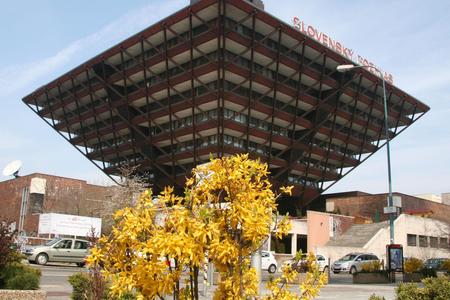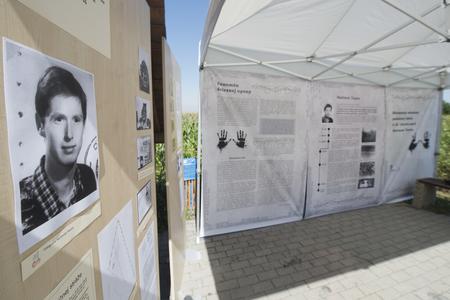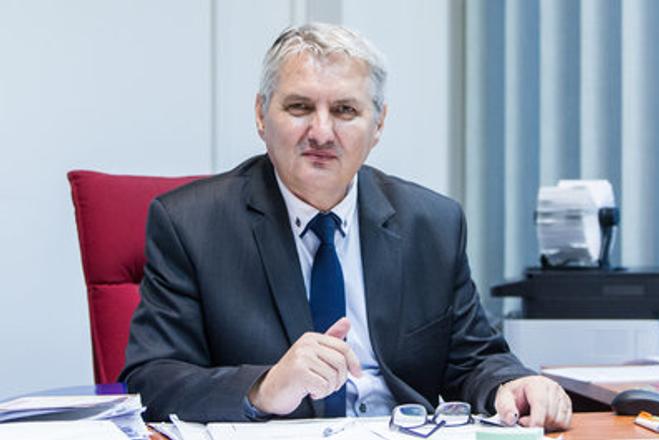Ondrej Krajňák was one of the rare examples of unity between coalition and opposition when choosing the head of a state institution. With 105 of 150 votes in February 2013 he became the third head of the Nation's Memory Institute (ÚPN), responsible monitoring crimes of communist and pro-Nazi regimes in past.
Before the elections, former historian of the institute Patrik Dubovský described him as a good person but too mild to carry out needed personnel changes.
Four years later, ÚPN’s administrative board describe him as a strict authoritarian leader who punishes his employees for voicing their opinions and wastes the institute’s money.
After the board approached parliament, coalition MPs proposed an amendment to the law on ÚPN to make the administrative board the collective leadership organ with the powers of ÚPN director. This would mean that Krajňák would leave his post as of October 15, 2017, yet he would remain a member of the administrative board until the end of the term in office for which he was elected, i.e. until 2019.
Krajňák denies the accusations and points to the fact that the proposal came just a few months before the Czech general election on October 2017. He is currently involved in a dispute with Czech Finance Minister of Slovak origin, Andrej Babiš who is, according to the ÚPN, registered in the files of the communist-time secret service, ŠtB, as an agent with the code name Bureš.
The World Association of Former Political Prisoners (SZBPV) backed Krajňák, claiming that if parliament passes the amendment this would mean a return to totalitarian practices of the past and would reduce the UPN to a retirement business for political nominees.
“Out of respect for the sacrifices of fascism and communism which were brought in the name of freedom and democracy, SZBPV appeal to coalition MPs and MP [Martina] Šimkovičová to withdraw their amendment to the law on ÚPN,“ František Bednár o SZBPV told the press.

Conflict within ÚPN
Krajňák claims that from the beginning he wanted to change the ÚPN from promoting nationalist ideas to documenting crimes of totalitarian regimes.
However, soon after he took office he started to complain that without supporters in the administrative and supervisory boards he cannot adopt any significant changes.
Three years of tug-of-war with the board resulted in two criminal complaints by Krajňák against his own institution for preventing him from fulfilling his duties. Both boards approached the parliamentary committee for human rights on October 2010 with a list of accusations against Krajňák.
“There is an atmosphere of fear,” chairman of the institute’s supervisory board Juraj Hamulák told MPs during a committee session. “The situation is unbearable.”
Hamulák explained that the Supervisory Board is now handling dozens of motions concerning Krajňák’s authoritative behaviour.
The Supervisory Board also claims that Krajňák hired an external law firm in a non-transparent way, ignoring the fact that ÚPN already has its own lawyer.
Another complaint was that the ÚPN joined the Christian Democratic Movement (KDH) election campaign. The party was broadcasting one of ÚPN’s movies and also used its brand.
Since then the Supreme Audit Office and Labour Inspectorate has checked into ÚPN but has found no violation of the law. Regarding the KDH campaign, the party already apologised for using ÚPN’s logo, according to Krajňák.
The institute is obliged to provide its films to anyone who asks for them. KDH used the institute’s logo without informing him about it, according to Krajňák.
Moreover, he explained hiring an external law firm by the fact that the institute’s lawyer has lost 19 cases.

Disputes over history
The only relevant objection is that there are tensions between ÚPN’s head and some of his inferiors, according to Krajňák.
His predecessor Ivan Petranský hired several historians praising the first Slovak state despite the fact that it was a Nazi-allied country transporting around 70,000 Jews to concentration camps during the World War 2. “
“I told them that the priority of this institute is to expose crimes of Nazism and Communism,” Krajňák told The Slovak Spectator. “Instead they were focusing on statehood.”
Their attitude was also mirrored in the content of the institute’s quarterly. Instead of dealing with crimes of previous oppressive regimes, the authors, for example, wrote around 15 pages about Hlinka’s Guard symbols without mentioning that it was a fascist organisation abusing citizens.
“I cannot tolerate below-average quality of [employees'] work and unreasonable harm to the institute’s name,” Krajňák told the committee, adding that some employees got used to showing up to work only a few times per month.
Some authors saw that as censorship, Krajňák added.
Coalition: It is not about Krajňák
The MPs who filed the draft amendment – Jaroslav Paška (SNS), Maria Janíková (Smer), Edita Pfundtner (Most-Hid) and Martina Šimkovičová (independent) claim that the amendment is not about getting rid of Krajňák .
Making the administrative board responsible for all important decisions instead of giving such power to one person is a more democratic approach, according to them.
Yet this would make the ÚPN vulnerable to disputes because disagreement over some issue among board members could paralyze decision making, according to the Confederation of Political Prisoners of Slovakia (KPVS).
“It is possible that members of the administrative board appointed from various [parties from the] political spectrum would not agree on a united statement for a long time,” KPVS’s head Andrej Dvorecký told the press.
When approached by The Slovak Spectator, head of Smer parliamentary group Martin Glváč stated that the change is related to accusations against Krajňák.When asked about proven ones he pointed only to the KDH's use of its logo.
In addition, Pfundtner stated that the proposal comes after long-term criticism of Krajňák's work, though she failed to name a single accusation that would be proven by authorities. She also admitted that she approached several people in ÚPN but has never spoken with Krajňák or checked into the claims of his critics.
“Where would we end up if we as parliament members started to interrogate employees,” Pfundtner told The Slovak Spectator.
On the other hand, the civic organisation, Daughters of Political Prisoners (DPV) supports Krajňák claiming that the coalition merely wants to create jobs for its nominees who have close ties with the former communist regime.
“The reason [for the amendment] is to have power to manipulate the truth, reward “our people” with posts and protect followers of communism and their supporters,” reads a statement of DPV.


 Ondrej Krajňák, head of the National Memory Institute. (source: Sme)
Ondrej Krajňák, head of the National Memory Institute. (source: Sme)